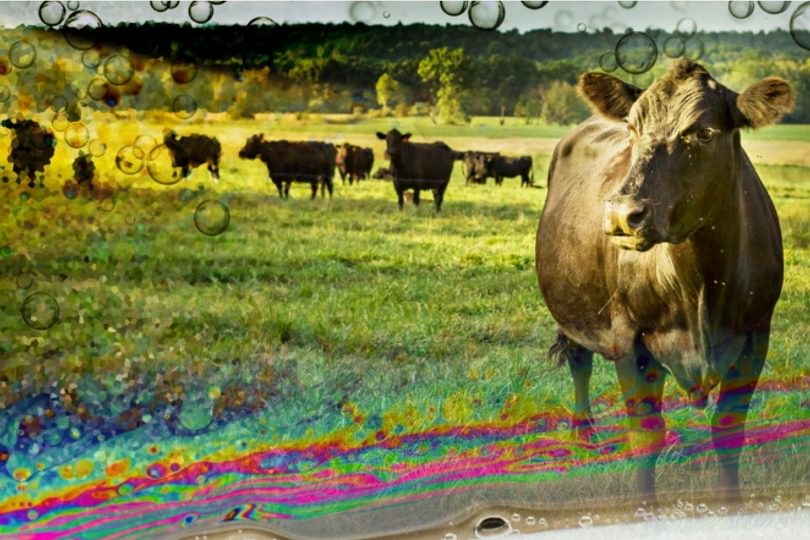
Is there such a thing as a climatically-guilt-free steak? Are grazing livestock climate villains or climate saviours? A new report by an international research collaboration led by the Food Climate Research Network (FCRN), part of the Oxford Martin Programme on the Future of Food, provides an authoritative answer to these questions.
The new report Grazed and confused? helps add clarity to the debate around livestock farming and meat and dairy consumption.
14.5 % of all human made greenhouse gas emissions come from the livestock sector as a whole. There is however some confusion and disagreement in the debate about the climate impacts of grazing livestock (and particularly grass-fed beef).
Some commentators have argued that well-managed grazing can remove carbon dioxide from the atmosphere and sequester it in soils, and that these removals can substantially compensate for, or even exceed, all other emissions from the livestock that are doing the grazing. In this way, grass-fed beef has been offered by some as a climate solution, rather than a problem.
Written by FCRN’s Dr Tara Garnett in collaboration with Cécile Godde of CSIRO and a team of international experts, this report dissects claims made by different stakeholders in the debate, and evaluates them against the best available science. This report finds that better management of grass-fed livestock do not hold a solution to climate change as only under very specific conditions can they help sequester carbon. This sequestering of carbon is even then small, time-limited, reversible and substantially outweighed by the greenhouse gas emissions these grazing animals generate. Dr Garnett explains the key takeaways from this report:
“This report concludes that grass-fed livestock are not a climate solution. Grazing livestock are net contributors to the climate problem, as are all livestock. Rising animal production and consumption, whatever the farming system and animal type, is causing damaging greenhouse gas release and contributing to changes in land use. Ultimately, if high consuming individuals and countries want to do something positive for the climate, maintaining their current consumption levels but simply switching to grass-fed beef is not a solution. Eating less meat, of all types, is.”